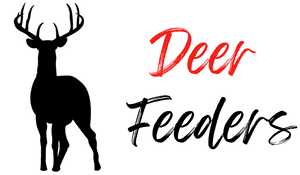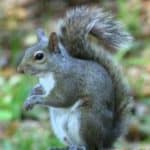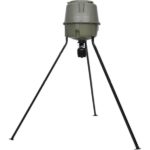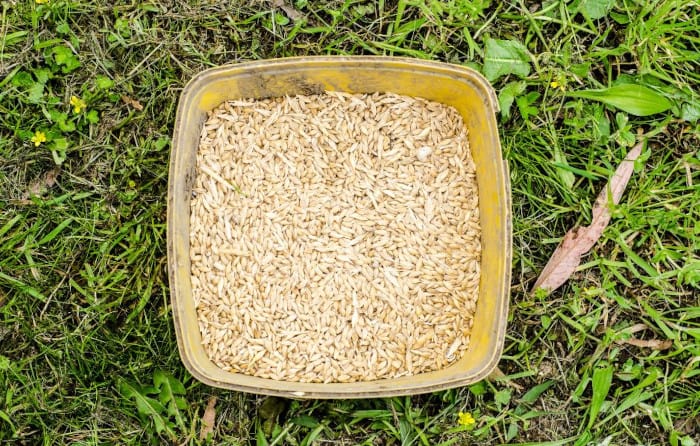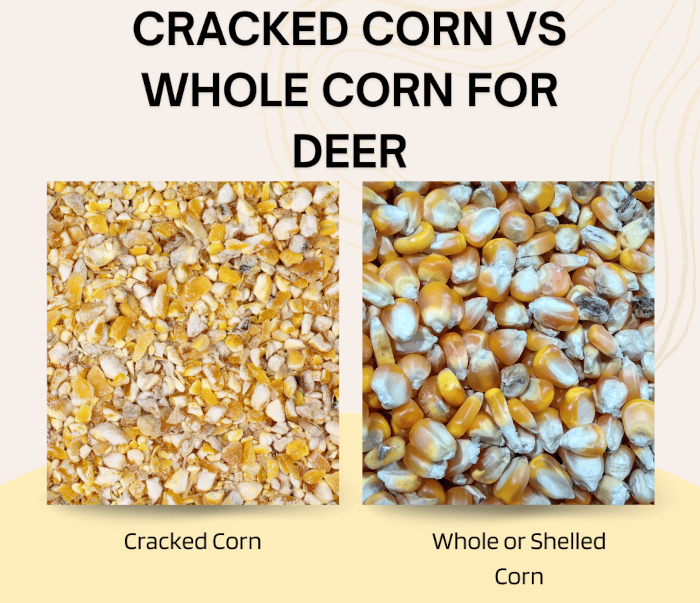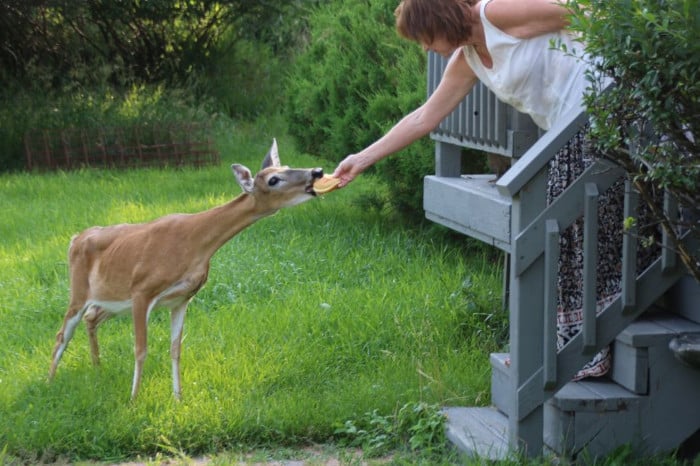At my day job, I spend a fair amount of time answering questions about deer feeders and about feeding deer in general. While most of the questions I answer are related to feeding deer for hunting purposes, there are also a fair number of people who are feeding deer solely to help the deer survive through the winter. One of the more interesting questions I’m asked from the non-hunting deer feeders is this: do deer eat carrots? Or, do deer like carrots?
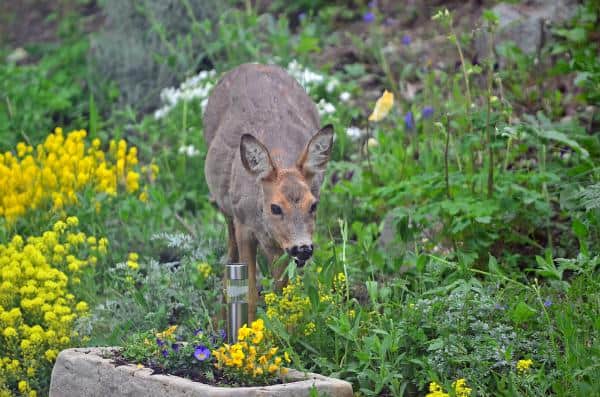
Before I get into answering that question, let me provide some clarification on a few points:
- When I talk about carrots in terms of a potential food source for deer, I’m talking about carrots grown in gardens or wild carrots. I have to provide this clarification as I’ve had more than one person specifically ask about feeding deer commercially processed carrots from a can.
- When I talk about deer, I’m using that term to describe a deer species called Whitetail Deer that are prevalent in most parts of the United States. While Whitetail Deer is a general term to describe the species, several sub-species are within the top-level species taxonomy. I don’t have any personal experience with Mule Deer, so I can’t really provide any details about their diet or suggested feeder configurations.
Do Deer Eat or Like Carrots?
Let’s get back to answering the focal point of this post: Can or do deer eat carrots?
The answer is yes. Deer can and do eat carrots, including wild carrots and garden-grown carrots.
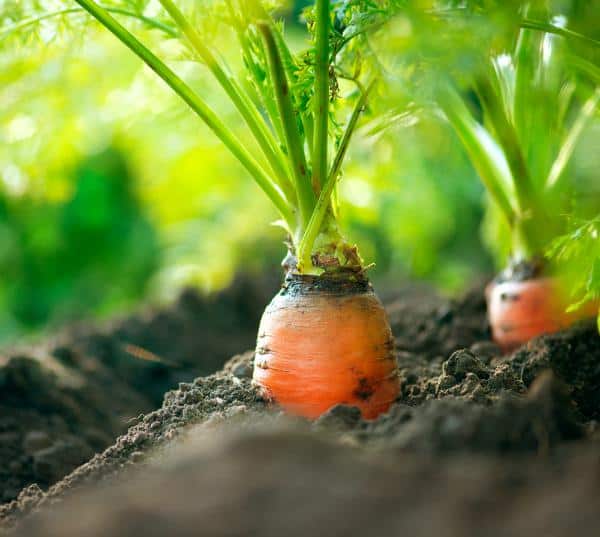
However, carrots, even wild carrots, are not a typical and primary natural food source for deer. They may find wild carrots growing organically and eat them, but wild carrots are not a staple food source for deer. By staple, I mean that wild carrots are not a primary source of food for wild deer.
However, deer will eat and absolutely love garden-grown carrots. When the carrots have developed under grown, the deer will pull the entire carrot out of the ground and consume the whole carrot and stalk.
Gardeners who grow vegetables for their consumption will go to great lengths to keep deer out of a garden. However, short of building a fence too high for a deer to jump, most gardeners are fighting an uphill battle keeping deer out of a garden.
Are Carrots a Good Food Source for Deer?
Biologists seem split over the answer to the question of whether or not carrots are good for deer.
Some biologists argue that, since carrots are not a primary source of food within a deer’s diet and not part of their regular organic diet in the wild, they are not a good food source option. Even though wild carrots are found organically in the wild that deer eat, those wild versions are not the same as garden-grown carrots engineered for human consumption.
Those biologists feel that, since garden-grown carrots are made for human consumption and not part of the regular deer diet, deer don’t process and digest carrots well. They also argue that garden-grown carrots don’t offer much nutritional value for deer in comparison to their natural diet.
Other biologists and deer experts believe that garden-grown carrots are a treat for deer and, in moderation, do not cause any adverse issues. Again, the key takeaway from that group of opinions is the “in moderation” concept.
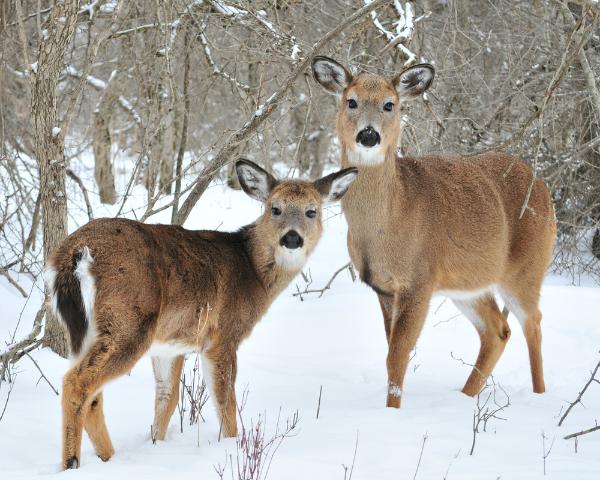
Is Feeding Carrots to a Wild Deer a Good Idea?
The answer to that question is closely tied with the idea of supplemental deer feeding in general. Supplemental deer feeding is a fancy way of saying “feeding deer.”
The idea of supplemental deer feeding has both proponents and those against it. Here’s a bit of background on supplemental feeding for deer. During Spring and Summer, deer have a plethora of food that is available to eat. As the season changes to Fall, the available amount of naturally occurring food for deer begins to dwindle. By winter, that organic food is nearly gone and becomes extremely hard to find.
During the winter, especially in areas with heavy snow, the lack of available food adversely impacts the deer population through starvation and disease indirectly tied to lack of food.
As means to help the deer through the winter (along with various other reasons for hunters), people either directly or indirectly offer a supplemental food source. Let me provide a more in-depth explanation to the indirect or direct approach of supplemental feeding:
Direct Deer Feeding – In this scenario, where legal, both nature lovers and deer hunters, put out a secondary food source for deer. This food source is usually corn or oats, although it can be other food sources as well. Corn and oats are the two most popular as they are the most cost-efficient and last the longest without going bad.
Indirect Deer Feeding – In this scenario, deer are actively looking for secondary food sources and find those sources in locations like gardens, bird feeders, etc. This feeding is more indirect as the food is not explicitly placed out for the deer, but they are taking advantage of it as a means to get through the winter.
The pros and cons of feeding deer have long been a debatable practice, and some states will not allow the direct feeding of deer for any reason.
Proponents of feeding deer say that supplemental feeding is good for keeping and maintaining a healthy deer population, and the feeding helps reduce diseases such as Chronic Wasting and EHD.
Opponents of offering a supplemental food source for deer argue that it interferes with the natural ecological process and survival of the fittest. They also say that feeding deer increases the transmission of diseases among deer as the food is a source of gathering for deer, and the close proximity serves as a method of spreading those diseases.
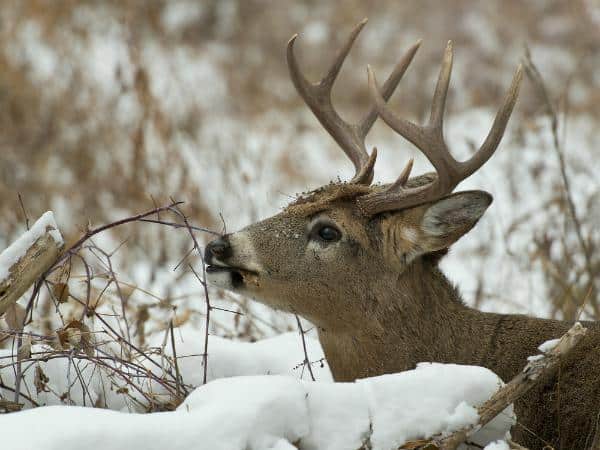
From the standpoint of a hunter (which I am), I understand both sides of the equation. However, I’m in favor of supplemental feeding as I prefer a healthy deer population so that future generations of hunters will have the same deer hunting opportunities that I’ve had.
From a nature lover’s standpoint, I can understand the desire to help deer survive through a harsh winter climate by providing them additional winter food.
In the end, I’m not sure either the proponents or those who oppose deer feeding are entirely right or entirely wrong.
FAQS
Here are some frequently asked questions that I’ve seen related to the topic of feeding deer carrots:
Can I feed deer canned or processed carrots?
While garden-grown carrots seem OK for deer in moderation, I wouldn’t recommend feeding them canned or processed carrots. Canned carrots are specifically packaged and processed for human consumption, and I’m not sure that deer would be able to process and digest that form of carrots.
When feeding deer garden-grown carrots, do I need to remove the top of the carrots, including the stalk?
Deer will eat the entire carrot, including the stalk, so it’s unnecessary to remove the stem. When deer encounter carrots in a garden, they usually pull a mature carrot out of the ground by the stalk, then eat both the carrot and the stem.
